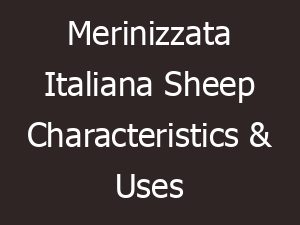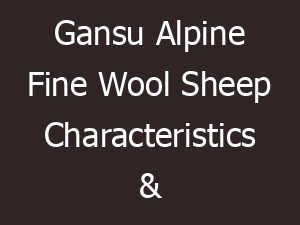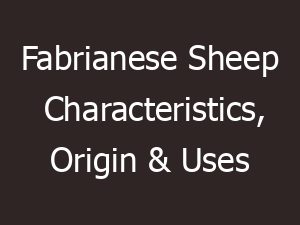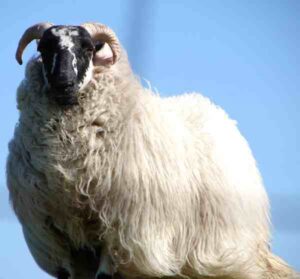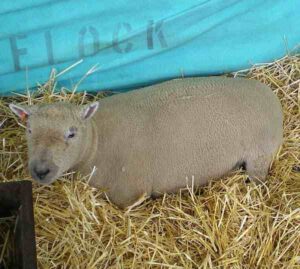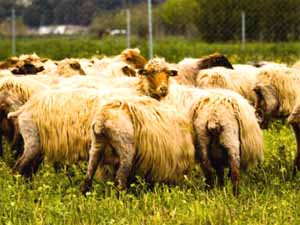The Pomeranian Coarsewool sheep is a very old breed of domestic sheep from the Pomerania region of Germany.
It is also known by some other names such as Pommernschaf, Rauhwolliges Pommern, Rauhwolliges Pommersches Landschaf or simply as Pomeranian sheep.
It’s such an old breed that the first records of similar sheep in Pomerania can be traced to more than 3000 years ago.
The breed was initially called Grauwollschafe (“greywool sheep”). And the name then changed to Rauhwollschafe (“coarsewool sheep”) by dropping the first letter.
Agricultural production was intensified in the middle of the nineteenth century, and also the existing landrace breeds modified.
The textile industry asked for fine wool and the breeders cross-bred and kept imported Spanish Merinos which caused the decline of the Pomeranian Coarsewool sheep.
The breed almost vanished in the 2nd half of the twentieth century. During that time, total population of these animals dropped below 100. And the breed was placed on the Red List of endangered livestock breeds.
However, total population of the Pomeranian Coarsewool sheep breed has since recovered somewhat. However, read some more information about this German sheep breed below.
Pomeranian Coarsewool Sheep Characteristics
Pomeranian Coarsewool sheep is a medium sized breed of domestic sheep. It is usually slate-blue or grey in color with a black head.
The lambs are born wholly black. Both rams and ewes are usually polled, that means they have no horns. They have straight nose.
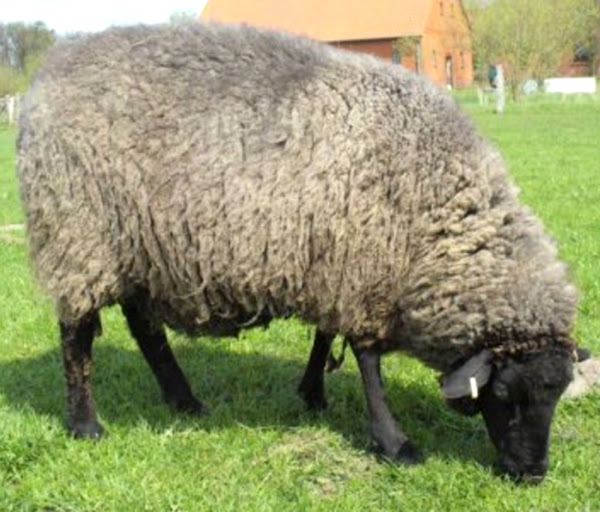
Legs of the Pomeranian Coarsewool sheep are covered with wool, and their legs are long and the hoofs are hard. Their tongue is blue. Their fleece has shorter hair amongst the longer wool.
As a medium sized animal, average live body weight of the mature Pomeranian Coarsewool rams is around 65 kg. And the mature ewes on average weight around 55 kg. Photo and info from Wikipedia.
Uses
The Pomeranian Coarsewool sheep are a dual-purpose animal. They are used mainly for meat production and vegetation management.
Special Notes
The Pomeranian Coarsewool sheep are very hardy animals, and they are able to live outside all year. They are even able to raise lambs in the snow.
They are not fussy eaters and can thrive well on sandy poor forage and as well as on moory ground. These animals are highly resistant against parasites.
They can be kept either alone or in small flocks. The ewes can lam easily, and they can lamb easily by themselves on the pasture and can be bred three times in two years.
However, review full breed profile of this breed in the following chart.
| Breed Name | Pomeranian Coarsewool |
| Other Name | Also known by some other names such as Pommernschaf, Rauhwolliges Pommern, Rauhwolliges Pommersches Landschaf or simply as Pomeranian sheep |
| Breed Purpose | Meat production and vegetation management |
| Special Notes | Very hardy and strong animals, able to live outside all year, the ewes are able to raise lambs in the snow, thrive well on poor forage, highly resistant against parasites, can be kept either alone or in small flocks, ewes can lamb easily by themselves, can be bred 3 times in two years |
| Breed Size | Medium |
| Weight | 55 to 65 kg |
| Horns | No |
| Climate Tolerance | Native climates |
| Color | Slate-blue or grey with black head |
| Rarity | Common |
| Country/Place of Origin | Germany |

